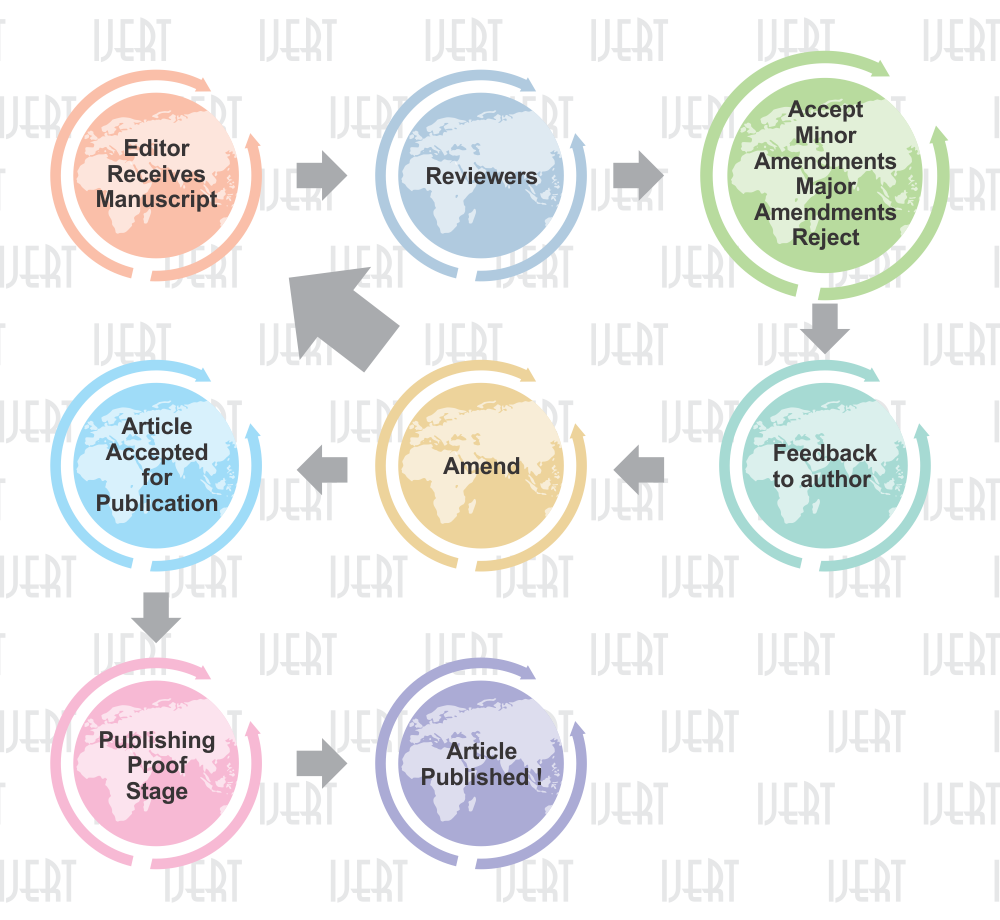Peer-Review Policy
IJERT follows Single blind peer-review using Online EMS System.
The International Journal of Engineering Research & Technology adheres to the Committee on Publication Ethics (COPE) Code of Conduct and Best Practice Guidelines (http://publicationethics.org). We strive to ensure that peer review is fair, unbiased and timely. Decisions to accept or reject a manuscript for publication are based on the manuscript’s importance, originality and clarity, and the study’s validity and its relevance to the remit of the journal.
We use a wide range of sources to identify potential reviewers, including the editorial board, personal knowledge, author suggestions, and bibliographic databases. Reviewers’ evaluations play a major role in our decision as to whether to accept a manuscript for publication.
Selection of Reviewers
Reviewers are selected on the basis of many factors, including expertise, prior publications in the same topic area, and prior performance as a reviewer (including quality and timeliness). Invitations to review may contain confidential information, which should be treated as such.
Initial manuscript evaluation:
All new submissions are screened for completeness and adherence to the Guide for Authors.
Authors of manuscripts rejected at this stage will normally be informed within 3-5 days.
Associate Editor evaluation:
When assigned a new submission, the Associate Editor will decide if it warrants peer review or if it should be rejected without review. Manuscripts rejected at this stage are insufficiently original, have serious conceptual and/or methodological flaws, have poor grammar or English language, or are outside the aims and scope of the journal.
Authors of manuscripts rejected at this stage will normally be informed within 5-10 days.
Those manuscripts deemed suitable for peer review are passed to at least 1 expert referees for review.
Reviewers are matched to the paper according to their expertise and our referee database is constantly being updated.
Reviewer reports:
Reviewers are asked to evaluate a manuscript for:
Originality and significance of contribution, interest to scholars, scientists and/or practitioners, relevance, coverage of appropriate existing literature, adequacy of methodology, analysis and interpretation, clear, concise and jargon-free writing style.
Reviewers are asked to provide anonymous comments to the author and are also given the option of providing confidential comments to the editor.
Typically the manuscript will be reviewed within 5-20 days.
The final decision and time to publication:
The Associate Editor is responsible for the decision to reject or recommend the manuscript for publication. This decision will be sent to the author along with any recommendations made by the referees.
After acceptance, it currently takes up to 5 days to publish article online.
Timeliness
Because we are committed to provide timely editorial decisions, potential reviewers are requested to respond promptly and those who accept invitations to review are requested to provide their comments within the agreed timeframe. If reviewers anticipate that they will not be able to meet the deadline, they are requested to inform the assigning editor so that alternative arrangements can be made.
Potential Conflicts of Interest
If a reviewer perceives that there may be a significant conflict of interest (financial or otherwise) for a particular manuscript that they are invited to review, they should either seek clarification with the assigning editor or decline the invitation.
Confidentiality
Manuscripts are reviewed with due respect for authors’ and reviewers’ confidentiality. As a condition of agreeing to assess the manuscript, all reviewers undertake to keep submitted manuscripts and associated data confidential. If a reviewer seeks advice from colleagues while assessing a manuscript, he or she ensures that confidentiality is maintained and that the names of any such colleagues are provided to the journal with the final report.
Anonymity
We do not release reviewers’ identities to authors. We strongly discourage reviewers from revealing their identities as they may be asked to comment on the criticisms of other reviewers and on further revisions of the manuscript; identified reviewers may find it more difficult to be objective in such circumstances. We also strongly discourage authors from attempting to determine reviewer identities or to confront their reviewers directly. Our policy is to neither confirm nor deny speculation about reviewers’ identities and we encourage reviewers to adopt a similar policy.


